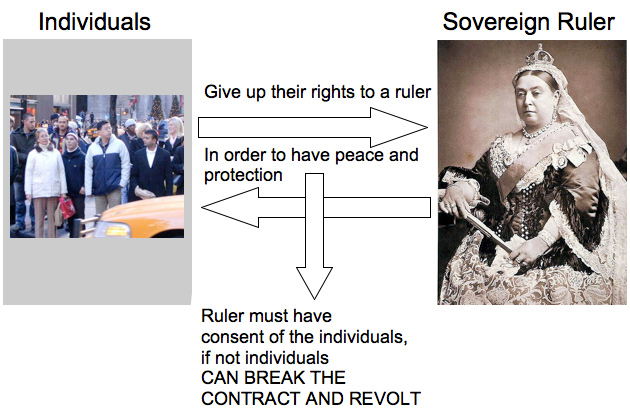
Even if individuals have entered into a social contract, if they feel their rights have been threatened, they do not have to give consent to their government. Where in U.S. history have you seen this before? This idea is one that Jefferson wrote into the Declaration of Independence explaining why it was okay for the colonies to break away from the King (and England).
So, Locke still believes in social contract, like Hobbes, except there's an added part. If the individuals believe their rights are being threatened by the government, they have a right to throw off that government and break the contract. The image below is an illustration of a social contract (Locke).

Now let's see you fill in the blanks regarding Locke's point of view on individual liberty.
![]() Drag each term to the correct place in the sentences below.
Drag each term to the correct place in the sentences below.